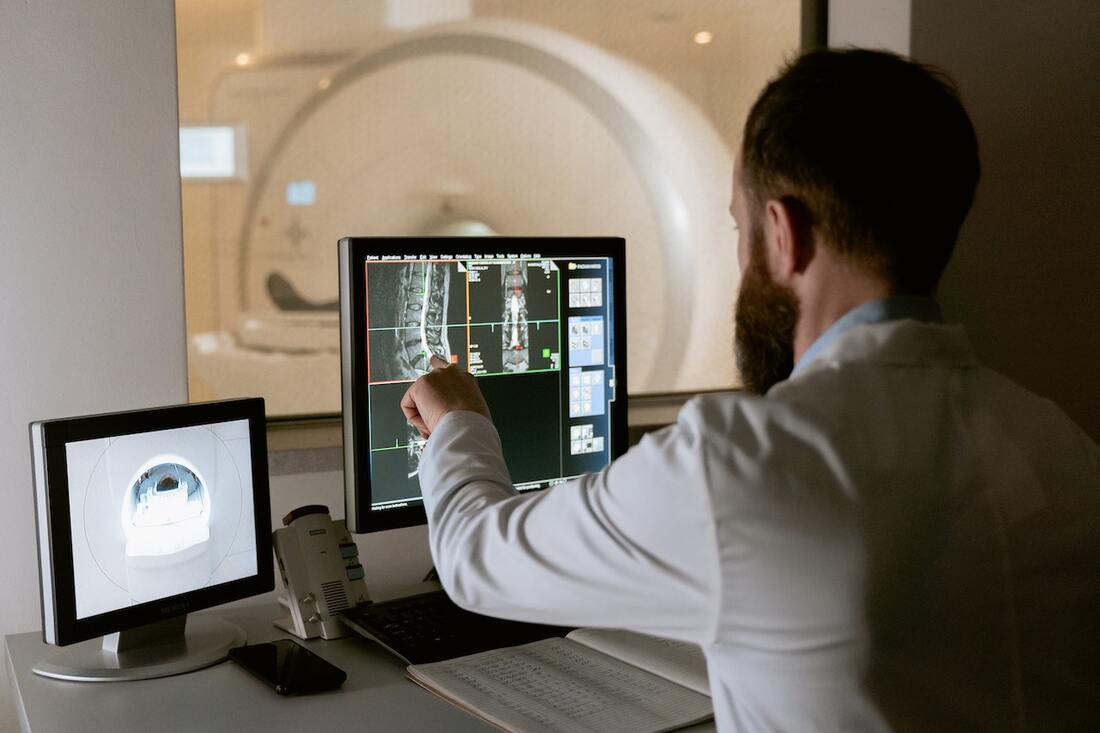|
Avascular necrosis (AVN), also known as osteonecrosis, is a condition in which bone tissue dies due to a lack of blood supply. It can occur in any bone in the body, but most commonly affects the hip, knee, shoulder, and ankle joints. AVN is a progressive disease that can lead to severe pain, disability, and joint destruction if left untreated. In this article, we will discuss the causes, symptoms, diagnosis, and treatment options for AVN.
Causes of AVN There are several factors that can lead to AVN. The most common cause is a disruption of the blood supply to the bone. This can occur due to trauma, such as a fracture or dislocation, or due to certain medical conditions, such as sickle cell anemia, lupus, or HIV. Other risk factors for AVN include long-term steroid use, excessive alcohol consumption, and radiation therapy. Symptoms The symptoms of AVN can vary depending on the severity and location of the affected bone. In the early stages, there may be no symptoms at all. However, as the condition progresses, the following symptoms may occur: - Pain in the affected joint that worsens with activity - Stiffness or limited range of motion in the affected joint - Swelling, tenderness, or warmth in the affected area - A clicking or popping sound when moving the joint - Collapse of the affected bone, which can cause a deformity or shortening of the limb How to Diagnose AVN? To diagnose AVN, your doctor will perform a physical exam and review your medical history. They may also order imaging tests, such as X-rays, MRI, or CT scans, to evaluate the affected bone and surrounding tissue. In some cases, a bone biopsy may be necessary to confirm the diagnosis. What are the Treatment Options for AVN? The treatment options for AVN depend on the severity of the condition and the location of the affected bone. In the early stages, conservative treatment measures may be effective in relieving pain and preventing further damage. These may include: - Resting the affected joint and avoiding activities that exacerbate the pain - Using crutches or other assistive devices to reduce weight-bearing on the affected limb - Taking nonsteroidal anti-inflammatory drugs (NSAIDs) or other pain relievers to manage discomfort - Physical therapy to improve range of motion and strengthen the surrounding muscles In more advanced cases, surgery may be necessary to repair or replace the affected joint. The following procedures may be recommended: - Core decompression: A small hole is drilled into the affected bone to relieve pressure and promote new blood vessel growth. - Osteotomy: The bone is reshaped to improve its alignment and relieve stress on the affected area. - Bone grafting: Healthy bone tissue is transplanted to the affected area to promote healing and new bone growth. - Joint replacement: The damaged joint is replaced with an artificial joint made of metal or plastic. How to Prevent AVN While there is no surefire way to prevent AVN, there are several steps you can take to reduce your risk. These include: - Avoiding excessive alcohol consumption - Quitting smoking - Maintaining a healthy weight - Treating medical conditions that can increase the risk of AVN - Using caution when participating in high-impact sports or activities - Limiting the use of corticosteroids and other medications that can increase the risk of AVN Conclusion AVN is a serious condition that can lead to significant pain and disability. However, with early diagnosis and appropriate treatment, many people with AVN are able to manage their symptoms and maintain their quality of life. If you are experiencing joint pain or stiffness, it is important to see your doctor for a thorough evaluation and prompt treatment if necessary. For the best Atlanta orthopedics, trust only Atlanta Bone and Joint Specialists. Our surgeons have performed many orthopedic surgeries for over 30 years. Get in touch with us.
0 Comments
Leave a Reply. |
Archives
July 2024
Categories
All
|
Office HoursMon-Fri: 9AM-5PM
|
Telephone |
High School Football Season Added Coverage HoursSaturdays During High School Football Season
Injury Clinic is for INJURED PLAYERS ONLY. Snellville ONLY. 9AM-10AM MEDIA ROOM |


 RSS Feed
RSS Feed
